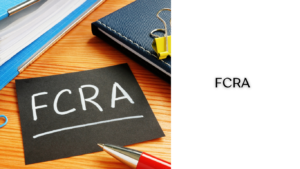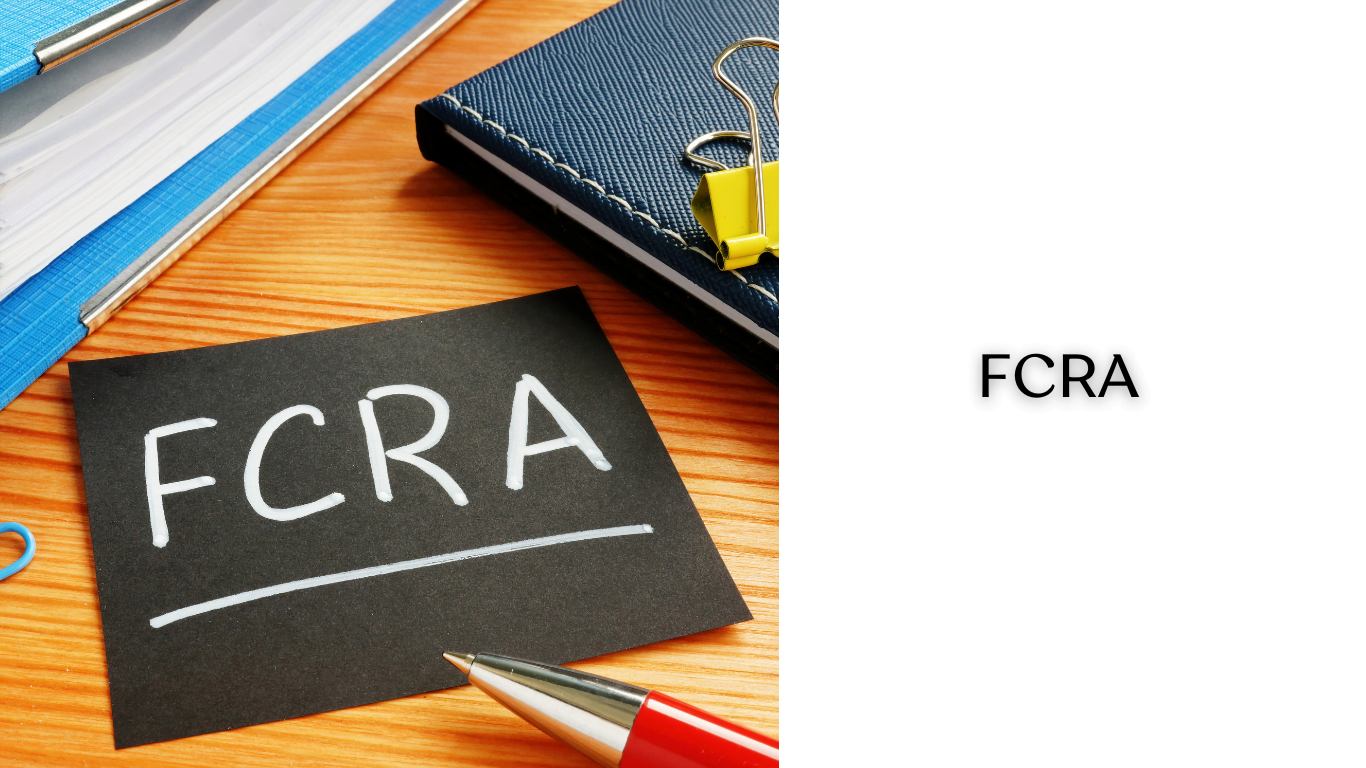FCRA
The Foreign Contribution Regulation Act (FCRA) is a crucial piece of legislation enacted by the Government of India to regulate the acceptance and utilisation of foreign contributions by individuals, associations, and NGOs operating within the country. Since its inception, FCRA has played a significant role in ensuring transparency, accountability, and the proper utilisation of foreign funds towards the intended objectives. In this detailed blog post, we will explore the various aspects of FCRA, including its criteria, compliance requirements, and implications for organisations.
- What is FCRA?

The Foreign Contribution Regulation Act, enacted in 2010, replaced the earlier legislation of 1976. Its primary objective is to regulate the acceptance and utilisation of foreign contributions or donations by individuals, associations, and NGOs in India. FCRA aims to prevent any adverse effects on national security and integrity by ensuring that foreign funds are used for legitimate purposes and do not influence domestic politics or policies in an undesirable manner.
FCRA stands for the Foreign Contribution (Regulation) Act. It is a law enacted by the Government of India to regulate the acceptance and utilization of foreign contributions or donations by individuals, associations, and non-governmental organizations (NGOs) in India. The primary objective of the FCRA is to ensure that such foreign contributions are not detrimental to the national interest or used for activities that may harm the sovereignty and integrity of India.
Under the FCRA, organizations or individuals receiving foreign contributions must register or obtain prior permission from the Ministry of Home Affairs, Government of India. The act regulates the acceptance, utilization, and reporting of foreign contributions to ensure transparency, accountability, and compliance with the law.
Organizations registered under the FCRA are required to maintain separate designated bank accounts for receiving foreign contributions and must submit annual returns detailing the receipt and utilization of such funds. The FCRA also prohibits the use of foreign contributions for activities detrimental to the public interest, such as those affecting national security, public order, or communal harmony.
Non-compliance with the provisions of the FCRA can result in penalties, cancellation of registration, or other legal consequences. Therefore, it is essential for organizations and individuals receiving foreign contributions to adhere to the requirements and regulations outlined in the FCRA to ensure legal compliance and accountability.
- Criteria for FCRA Registration
To obtain FCRA registration, organisations must meet certain eligibility criteria set forth by the Government of India. These criteria typically include:
– The organisation must be engaged in definite cultural, economic, educational, religious, or social programs.
– It must have a track record of at least three years in carrying out activities compatible with its objectives.
– The organisation’s activities must not be prejudicial to the sovereignty and integrity of India.
– The organisation must have spent a minimum of 10 lacs rupees on its objectives during the past three years.
– It must submit audited financial statements for the preceding three years along with the application for FCRA registration.
- Three Years Completion Requirement
FCRA One of the key requirements for FCRA registration is the completion of three years of existence for the organisation. This criterion ensures that only established and credible entities are eligible to receive foreign contributions. Organisations must demonstrate a track record of consistent activities and financial transparency to qualify for FCRA registration.
- Spending on Object
FCRA Another important criterion for FCRA registration is the expenditure of a minimum amount on the stated objectives of the organisation. This requirement ensures that organisations are genuinely committed to their stated goals and have utilised resources effectively towards achieving them. The minimum spending threshold of 10 lacs rupees over three years underscores the seriousness of purpose and financial accountability expected from FCRA-registered entities.
- Audited Financials
Submitting audited financial statements for the preceding three years is a mandatory requirement for FCRA registration. These financial statements provide insights into the organisation’s financial health, expenditure patterns, and compliance with accounting standards. The audit ensures transparency and accountability in the utilisation of foreign contributions and helps in evaluating the organisation’s eligibility for FCRA registration.
Watch this video for A Comprehensive Guide
Conclusion
In conclusion, the Foreign Contribution Regulation Act (FCRA) plays a crucial role in regulating the acceptance and utilisation of foreign contributions by organisations in India. By establishing stringent criteria and compliance requirements, FCRA aims to ensure transparency, accountability, and the proper utilisation of foreign funds towards legitimate objectives. Organisations seeking FCRA registration must adhere to the eligibility criteria, including the completion of three years of existence, minimum spending on objectives, and submission of audited financial statements. Compliance with FCRA regulations not only facilitates access to foreign funding but also enhances the credibility and trustworthiness of organisations in the eyes of donors and stakeholders.
Sources : https://www.mha.gov.in/PDF_Other/ForeigD-ForeigD-FCRA_FAQs.pdf
For More Information : https://taxgyany.com/

